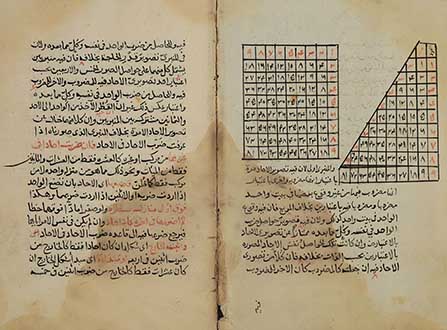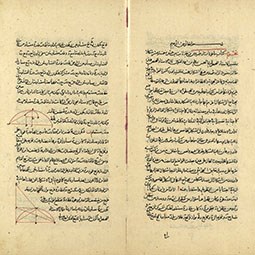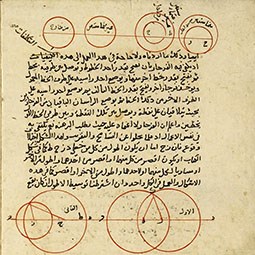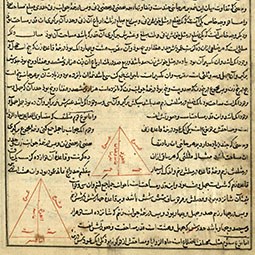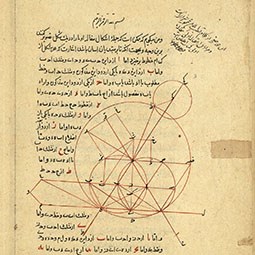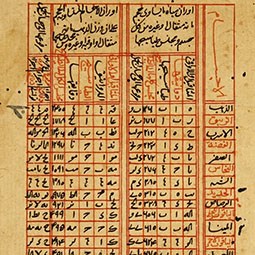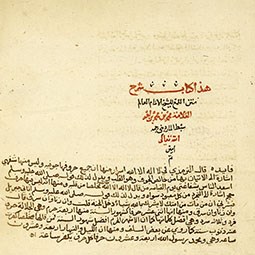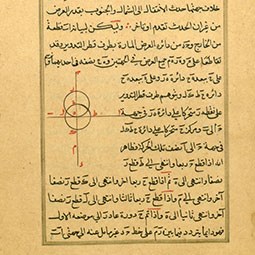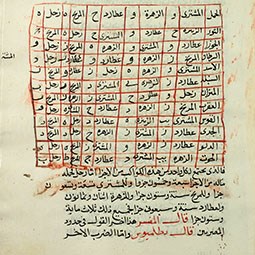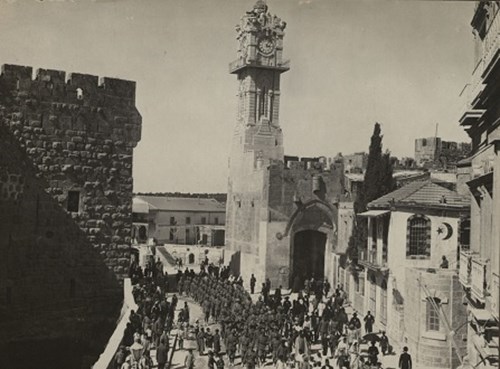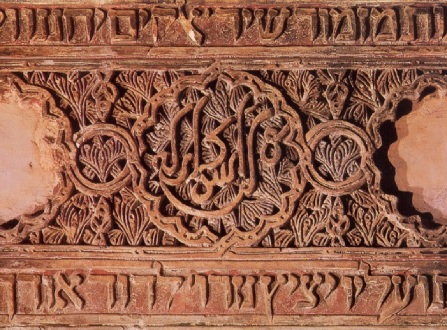Mathematics in Islam
Islamic scholars were the primary inheritors of the rich Hellenistic mathematical and scientific tradition. The works of Euclid (323-283 BCE), Archimedes (287-212 BCE), Ptolemy (100-170 CE), and other thinkers were translated, studied, copied, and commented upon for generations; it was in this form that their ideas were first encountered by European Christians in the later Middle Ages, rather than in the Greek or Latin originals. The most productive period of translation of scientific and other works occurred during the Abbasid dynasty. In the cosmopolitan setting of their newly founded capital of Baghdad, the Abbasid caliphs initiated a grandiose scholarly enterprise, and beginning in the late eighth century nearly all extant classical Greek sources were translated into Arabic by both Muslim and Christian scholars, defining the intellectual horizons for Muslims, Christians, and Jews up to the dawn of modernity.
The Islamic exact sciences, however, were not merely the product of a unidirectional cultural encounter. Not only were originally Hellenistic theories continually expanded and refined—and in some cases abandoned—but the Islamic intellectual world was actually a much richer cultural mélange. Indian, Babylonian, and Iranian theories and traditions, which were themselves already in conversation with each other and with Greek science before Islam, likewise contributed to the development of mathematics, astronomy, and other disciplines. The most famous example of this phenomenon is probably the development of algebra, a new, hybrid branch of mathematics born of the combination of Euclidean geometry with Babylonian problem-solving methods.
Among the exact sciences, astronomy and astrology deserve special consideration. While the two disciplines are seen as separate, and, indeed, mutually exclusive today, many Islamic intellectuals saw the two as closely linked. In effect, astrology was the applied science of astronomy, and astrologers made use of astronomers’ tools and computational methods; indeed, one thinker could be an adept at both. Astrology was used in diverse contexts, from selecting auspicious dates for lifecycle events in private life to determining far-reaching state affairs, such as choosing the best place for founding new cities or the right time to conduct military campaigns. However, the Muslim attitude to astrology was ambivalent, both regarding its compatability with religious principles, as well as regarding its reliability. A famous story describes thirteenth-century philosopher Fakhr al-Dīn al-Rāzī’s debate with astrologers over setting the time of a battle; in the end, al-Razi’s argument to attack at once won the day, and the war.

 Sign in with Google
Sign in with Google
 Sign in with Facebook
Sign in with Facebook
